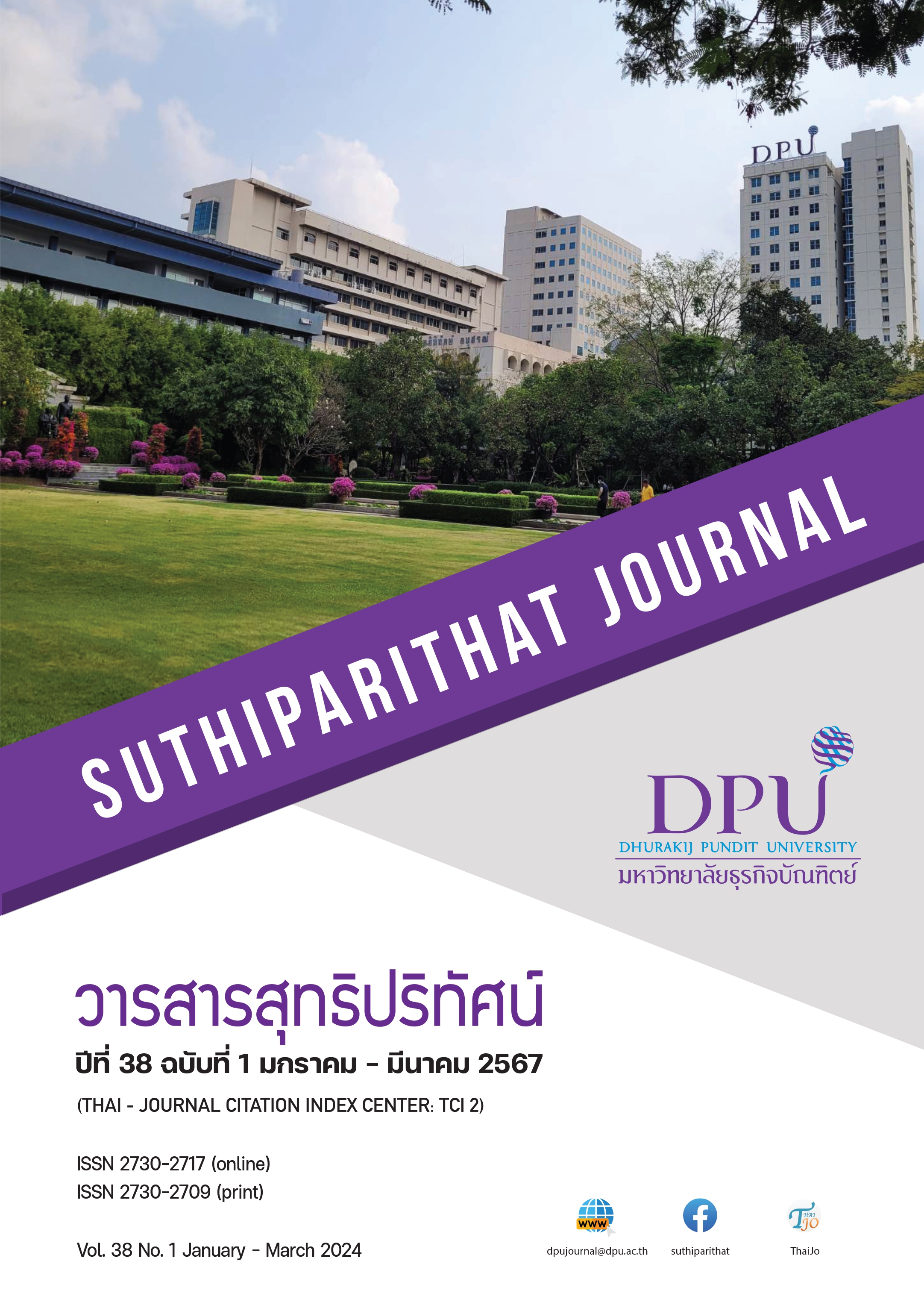การจัดการศึกษาอิสลาม: วิชาแกนและวิชาเฉพาะในหลักสูตรอิสลามศึกษาในประเทศไทย
คำสำคัญ:
อิสลามศึกษา, วิชาแกน, วิชาเฉพาะ, การจัดการศึกษาบทคัดย่อ
บทความวิชาการนี้มีวัตถุประสงค์เพื่อสำรวจความเร่งด่วนและความจำเป็นในการสร้างหลักสูตรอิสลามศึกษาในระดับมหาวิทยาลัยที่เกี่ยวข้องกับวัฒนธรรมในประเทศไทย หลักสูตรควรถูกสร้างให้เหมาะสมกับความต้องการทางวิชาการและความต้องการทางปัญญาของนักเรียนที่ต้องการพัฒนาความเข้าใจอย่างลึกซึ่งเกี่ยวกับอิสลาม การศึกษานี้นำเสนอกรอบทฤษฎีที่แสดงให้เห็นถึงการรวมกลุ่มรายวิชาหลักและหลักสูตรใหญ่ในหลักสูตร เพื่อเสริมความเข้าใจและความชื่นชมต่อความคิดและวัฒนธรรมอิสลามภายในบริบทที่เป็นเอกลักษณ์ของประเทศไทย กรอบทฤษฎีได้ถูกพัฒนาขึ้นจากการวิจัยที่ผ่านมาและการสนทนาทางวิชาการภายในสาขาวิชาที่เกี่ยวข้อง วัตถุประสงค์ของกลยุทธ์นี้คือเพื่อตอบสนองต่อความต้องการที่เฉพาะเจาะจงของชุมชนมุสลิมไทย โดยการรวมรวมการศึกษาอิสลามทางดั้งเดิมภายในบริบททางวัฒนธรรมและประวัติศาสตร์ที่เป็นเอกลักษณ์ของประเทศไทย
เอกสารอ้างอิง
Abdul-Raof, H. (2006). Arabic rhetoric: A pragmatic analysis. Routledge.
Ahmed, M. (2005). Islam in Southeast Asia: Reflections and new directions. University of California Press.
Armstrong, K. (1993). A history of god. Alfred A. Knopf.
Azra, A. (2012). Islam in Southeast Asia: A historical and cultural guide. Oxford Research Encyclopedia of Communication.
Esposito, J. L. (2018). Islam and the west: A historical and cultural encyclopedia. ABC-CLIO.
Fakhry, M. (2004). A history of Islamic philosophy. Columbia University Press.
Grabar, O. (2006). Islamic art and architecture: From Isfahan to the Taj Mahal. Thames & Hudson.
Hallaq, W. B. (2009). An introduction to Islamic law. Cambridge University Press.
Hashmi, S. (2017). Islamic political ethics: Civil society, pluralism, and conflict. Princeton University Press.
Hick, J. (2010). The new frontier of pluralism. In S. Harris, & C. R. Long (Eds.), Is goodness without god good enough?: A debate on faith, secularism, and ethics (pp. 27-43). Rowman & Littlefield.
Hussain, M. (2021). Muslims and the making of America. Baylor University Press.
Kamali, M. H. (2014). Shari'ah law: An introduction. Oneworld.
Malik, J. (2020). Islam in Southeast Asia: A historical and cultural guide. Oxford Research Encyclopedia of Communication.
Memon, A. (2015). Islamic education in the 21st Century. Springer.
Ministry of Higher Education, Science, Research and Innovation. (2021). Higher education plans to produce and develop the country's manpower BE 2564 – 2570. Ministry of Higher Education, Science, Research and Innovation.
Nasr, S. H. (2003). Islamic theology. The Macmillan Encyclopedia of Religion.
Necipoglu, G. (2017). The arts of ornamental geometry: A persian compendium on similar and complementary interlocking figures. Brill.
Rahman, F. (2010). Islam in Southeast Asia. Routledge.
Rahman, M. (2018). Islamic studies in a multicultural context: Perspectives on educational theory and practice. Springer.
Ramadan, T. (2009). Radical reform: Islamic ethics and liberation. Oxford University Press.
Ramadan, T. (2015). Islam: The essentials. Harper One.
Reid, A. (2001). Southeast Asia in the age of commerce, 1450-1680. Yale University Press.
Smith, A. (2015). Engaging communities: Strategies for Islamic education. Journal of Islamic Education, 10(3), 245-261.
Smith, J. (2019). Islamic studies: A global perspective. Edinburgh University Press.
UNESCO. (2020). Historic cities and urban heritage in the Arab States. https://whc.unesco.org/en/cities/
Wahba, A. (2014). Arabic language and linguistics: A festschrift for Yasir Suleiman. Brill.
Yusuf, I. (2018). Challenges of Islamic Education in Southeast Asia. Springer.
ดาวน์โหลด
เผยแพร่แล้ว
รูปแบบการอ้างอิง
ฉบับ
ประเภทบทความ
สัญญาอนุญาต
ลิขสิทธิ์ (c) 2024 มหาวิทยาลัยธุรกิจบัณฑิตย์

อนุญาตภายใต้เงื่อนไข Creative Commons Attribution-NonCommercial-NoDerivatives 4.0 International License.
เนื้อหาและข้อมูลในบทความที่ลงตีพิมพ์ในวารสารสุทธิปริทัศน์ ถือเป็นข้อคิดเห็นและความรับผิดชอบของผู้เขียนบทความโดยตรงซึ่งกองบรรณาธิการวารสาร ไม่จำเป็นต้องเห็นด้วย หรือร่วมรับผิดชอบใด ๆ
บทความ ข้อมูล เนื้อหา รูปภาพ ฯลฯ ที่ได้รับการตีพิมพ์ในวารสารสุทธิปริทัศน์ ถือเป็นลิขสิทธิ์ของวารสารสุทธิปริทัศน์หากบุคคลหรือหน่วยงานใดต้องการนำทั้งหมดหรือส่วนหนึ่งส่วนใดไปเผยแพร่ต่อหรือเพื่อกระทำการใด ๆ จะต้องได้รับอนุญาตเป็นลายลักษณ์อักษรจากวารสารสุทธิปริทัศน์ก่อนเท่านั้น







